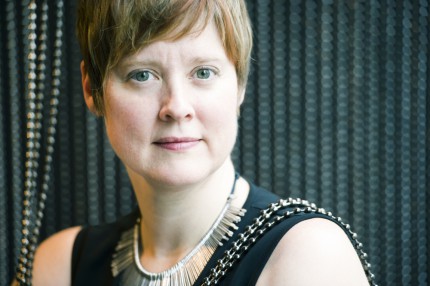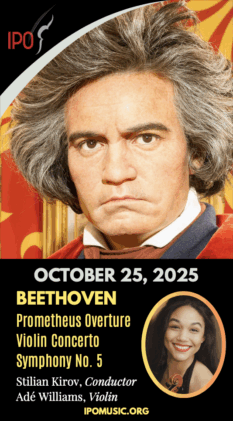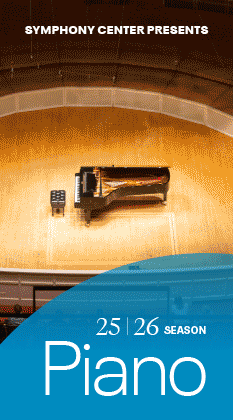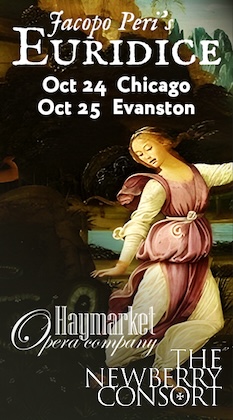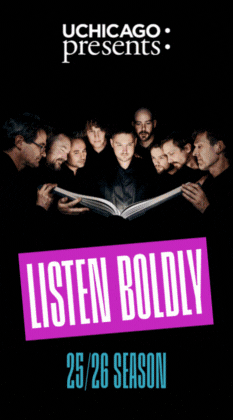MusicNOW sings the blues in Trapani’s powerful “Waterlines”

Since George Gershwin sat down at the piano in New York’s Aeolian Hall to give the first performance of Rhapsody in Blue in 1924, there have been countless attempts to blend popular music with the classical tradition. Yet almost a century after that historic event, you can still count on one hand the composers who managed that successful fusion of classical with jazz, folk or rock: Gershwin, Leonard Bernstein and John Adams.
Until now. In his Waterlines, performed at the MusicNOW concert Monday night at the Harris Theater, Christopher Trapani achieves a seemingly impossible feat: reconciling the raw and indigenous essence of American folk and Delta blues within a sophisticated and complex classical song cycle.
There are some successful–and wildly overrated–composers of Trapani’s generation who are feted for blending American vernacular music with the classical tradition when in reality the two genres stay in distinctly separate spheres.
Yet Waterlines is the real thing, creating a powerful new music out of two disparate elements. Trapani manages to retain the hardscrabble qualities of this American music with writing for voice and plugged-in chamber ensemble that is startlingly original and often breathtaking in its brilliance and audacity.
Born in New Orleans, Trapani was deeply affected by the flooding of that great city in the aftermath of Hurricane Katrina. His grandmother had told him stories of having lived through the 1927 Mississippi River flood, and in 2005 the house in which the composer grew up was itself destroyed by the rising waters of the Katrina disaster. Around that time Trapani began digging through archival recordings of Southern blues and country artists contemporary with the 1927 flood–people like Bessie Smith, Charley Patton, Lonnie Johnson and the Carter Family.
Waterlines is the result of that personal odyssey, a cycle of five songs for soprano, chamber ensemble and electronics. Trapani has crafted original music for the songs with texts drawn from existing folk and blues material dealing with rain, water and dislocation. The result is a powerful and even ground-breaking work, with songs that have the populist flavor and melodic contour of the blues blended with the pitch-weaving and unsettled tonality of spectral music.
The remarkable Tony Arnold was the soloist Monday, and she showed total identification with Trapani’s score. The soprano brought a fully idiomatic quality to the blues element while handling the technical demands faultlessly in a performance of communicative power and searing emotional impact.
The chamber ensemble is an equal partner, as Trapani ratchets up the intensity of the instrumentation with each song. His uninhibited scoring is a large part of the cycle’s success, including such exotica as Appalachian dulcimer, Turkish fretless banjo, and stroh violin, all of which serve to convey the hardscrabble quality of the music’s rural origins.
This important Chicago premiere received magnificent advocacy from soloist Arnold, and the versatile musicians–not least Carol Cook on stroh violin–under the alert and sensitive direction of Cliff Colnot.
The rest of the program–amiably hosted by CSO composers in residence Samuel Adams and Elizabeth Ogonek–offered two other works for large ensemble in their Chicago premieres.
Hans Abrahmsen has been enjoying an extraordinary tide of recent success. The Danish composer won the prestigious Grawemeyer Award for his Ophelia-inspired song cycle let me tell you, which received critical accolades in its U.S. premiere by the Cleveland Orchestra in January, followed by Boston Symphony Orchestra performances.
In Wald (Forest) from 2009, Abrahamsen uses a theme from his Thoreau-inspired wind quintet, Walden. Sadly, the low-fi audio in the preview interview with the composer was largely unintelligible, but Abrahamsen’s music spoke most eloquently on its own.
From the opening notes of Wald, Abrahamsen draws one into this set of variations for large chamber orchestra. The composer manages to evoke a haunting Weber-like sense of primeval forest mystery, refracted through a modernist lens.
The work begins with a quietly insistent pulsing that has the character of a hunt. There are lowing sounds for horn and several striking passages, as with the evocative double-bass solo (well played by Michael Hovnanian) that seems to suggest a mythic beast in his lair. In the final section, the music accelerates and the contrapuntal thickets become more raucous and complex, morphing into a kind of “Forest Murmurs” on Adderall, before the quiet coda. Colnot led a finely balanced and strongly projected performance of Abrahamsen’s distinctive and rewarding music.
Less successful was the evening’s opening work by Clara Iannotta. Intent on Resurrection–Spring or Some Such Thing is scored for large chamber ensemble and inspired by writings of David Foster Wallace and poetry of Dorothy Molloy.
Iannotta stated that she imagines “a room completely filled with dust” with fitful “glints of light,” and the Italian composer wields her forces with restraint and skill. Yet ultimately, her work seems as meandering and overlong as its title. Three minutes in we’ve pretty much heard everything, and the swoops and slides, scraping strings and assorted squeaks and squawks could have come from any number of dryly anonymous works written over the past sixty years.
Posted in Uncategorized
